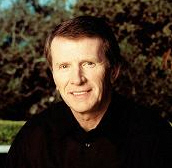Ray Lane visits the Gillmor Gang


On the subject of Web 2.0, Lane said it currently lives at the edge of the enterprise. While a majority of users in enterprises use Google for searching that doesn't make Google an enterprise player. (Note: Kleiner Perkins was an manor funder of Google.) However, like open source, Web 2.0 applications and services (he gave WebEx, Skype, salesforce.com, Monster, instant messaging and Google as early examples) have been virally adopted, and the value is derived before they pay for it, unlike traditional enterprise applications, where companies buy perpetual licenses up front and wait for the value to come months or years later. "The world of IT is going to change a lot in next five years. Innovation just coming alive and all the 2.0 dynamics will be pervasive in consumer and enterprise," Lane said.
He also said that "more than ever before, the huge no man's land between big companies and start ups--$200 to $300 million software company are "hosed." "A lot of this industry goes away in next five years."
Lane also offered his perspective on Oracle's acquistion of Innobase (Oracle is concerned that SAP will hook up with MySQL or another open source database and create problems) and on salesforce.com. Marc Benioff, salesforce.com CEO and another Oracle alumni, has taken a page from his mentor Larry Ellison (who would like to crush Benioff's company despite his estimated $4 million equity stake 4 million shares, or 4 percent of the percent of the company--not necessarily a big deal for someone worth $18 billion), Lane said.
Benioff is picking a fight with Siebel and now Oracle, calling their CRM software irrelevant. Ellison applied the same tactic in the 90s with his network computer push, picking on Microsoft. Despite the fact his vision wasn't realized, the more Microsoft took the bait, the bigger Oracle looked, Lane said. "Larry admires what Marc has done. [Salesforce.com] exploited their innovation with a new model--not in CRM but with software as a service--but it's not a great enterprise application to take on SAP or Oracle," Lane said.
He expects Oracle to compete "effectively and quietly, and not to try to make salesforce.com bigger than they are." Oracle should be able to undercut saleforce.com's pricing. On the other hand, it will take a while for Oracle and other large enteprise vendors to transition to software as service models because the need the up-front revenue to pay for their large sales forces and development operations. But the days of spending $1.5 to $2 billion to implement an IT solution are over, when you can get a product like SugarCRM and get almost the same value, Lane said.
He views maintaining command and control in the age of services and open source as one of the major challenges for CIOs today. The open source model clashes with the command and control structure of enterprises, which is necessary to keep costs down and the trains running on time, Lane said. New models need to be worked out, he said, but CIOs do understand about the quality, support and openness of open source, and are leading the charge. But most enterprises are less concerned about making contribrutions back to the open source community. General Electric is an exception in that the company is trying to build an open source lab and looking to contribute code back to the community.
What does Lane look for as a practicing venture capitalist? If you want to get an audience, his primary criteria are organic adoption (word of mouth); contextualized, personalized information; location aware; no training required; uses social relationships; you get the value before you pay; no big IT footprint; and no multi-year implementation. Sounds like software as services, with a dose of social networking and presence. Good luck...